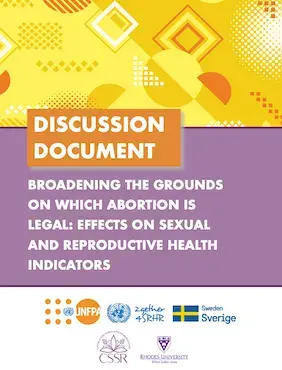Unsafe abortion continues to be a major cause of maternal death, accounting for 15 per cent of all maternal deaths globally, and almost all of these occur in countries with restrictive abortion laws. This discussion paper sought to offer insight into the question: “What are the effects on sexual and reproductive health indicators of broadening the conditions under which abortion is legal?”
The findings show that in 25 of 27 countries studied, a decrease in maternal mortality was observed after broadening legal access to abortion. In addition, the adolescent-specific fertility rate, crude birth rate and contraceptive prevalence rate showed positive changes in many countries after expanding the grounds on which abortion is legal. This demonstrates the possible sexual and reproductive health harm reductions that could be expected after expanding the legal provisions against which women can have an abortion.
As noted by the Guttmacher Institute researchers, abortions occur as frequently in countries with restrictive legislation as in countries with that allow abortions without restriction as to reason (37 and 34 per 1,000 women, respectively). The findings must be viewed in light of the fact that pregnant individuals with unwanted or unsupportable pregnancies will resort to abortion no matter the legal status thereof and illegal abortions are often unsafe.




